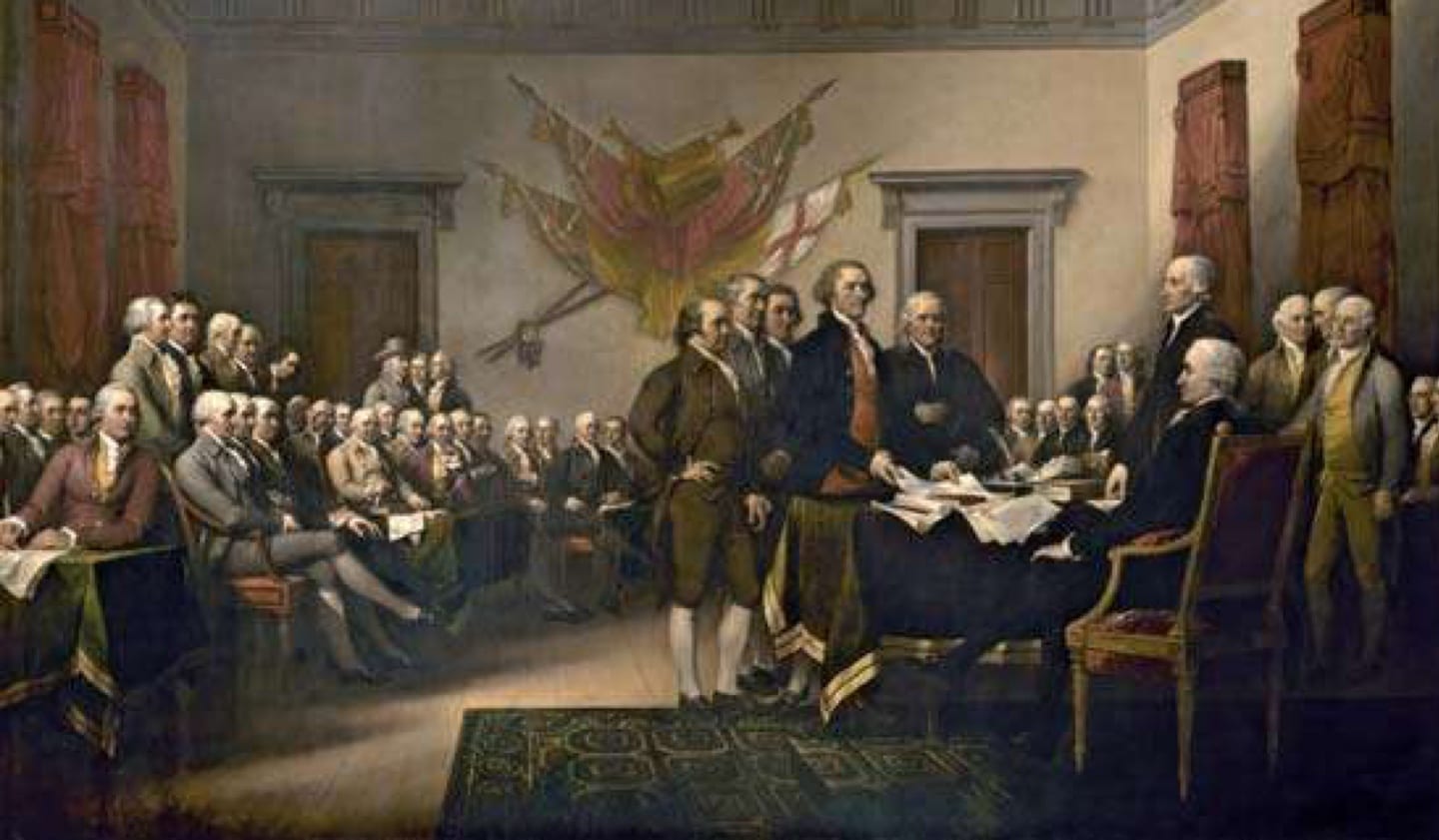Introduction
After eleven of the thirteen original states ratified the Constitution (North Carolina and Rhode Island did not ratify the document until later in 1789 and in 1790, respectively) and the federal government began operating, Congress turned to consider amendments that were intended to address some of the concerns expressed by Antifederalist critics of the Constitution during the ratifying debates (Documents 3 and 7). James Madison (1751–1836) introduced in the House of Representatives a series of proposed amendments, including the provision that became the Tenth Amendment. He explained the purpose of this amendment during a June 8, 1789, speech proposing the Bill of Rights: “I find, from looking into the amendments proposed by the state conventions, that several are particularly anxious that it should be declared in the Constitution, that the powers not therein delegated should be reserved to the several states. Perhaps words which may define this more precisely than the whole of the instrument now does, may be considered as superfluous. I admit they may be deemed unnecessary: but there can be no harm in making such a declaration, if gentlemen will allow that the fact is as stated. I am sure I understand it so, and do therefore propose it.”
As originally proposed, what became the Tenth Amendment read: “The powers not delegated by the Constitution, nor prohibited by it to the states, are reserved to the states respectively.” When the House debated this language, several members sought to add the word “expressly,” with the intent of making clear that state governments or the people retained all powers “not expressly delegated by this Constitution.” In an argument that proved persuasive to a majority of the chamber, Madison argued against including “expressly” in the amendment. The final text of the amendment, as it emerged from Congress and was ratified by state legislatures, declares: “The powers not delegated to the United States by the Constitution, nor prohibited by it to the states, are reserved to the states respectively, or to the people.”
The Tenth Amendment has been invoked throughout American history by officials, and especially judges, in the course of considering the legitimacy of federal acts (see, for instance, Executive Order 12612, Gregory v. Ashcroft, and Printz v. United States). However, the Supreme Court concluded in its most direct engagement with the Tenth Amendment (U.S. v. Darby, 312 U.S. 100 (1941)) that it is not judicially enforceable. In his opinion for the Court in that case, Justice Harlan Stone wrote: “The amendment states but a truism that all is retained which has not been surrendered. There is nothing in the history of its adoption to suggest that it was more than declaratory of the relationship between the national and state governments as it had been established by the Constitution before the amendment, or that its purpose was other than to allay fears that the new national government might seek to exercise powers not granted, and that the states might not be able to exercise fully their reserved powers.”
—John Dinan
August 18, 1789
The 9th proposition, in the words following, was considered, “The powers not delegated by the Constitution, nor prohibited by it to the states, are reserved to the states respectively.”
Mr. Tucker1 proposed to amend the proposition by prefixing to it “all powers being derived from the people.” He thought this a better place to make this assertion than the introductory clause of the Constitution, where a similar sentiment was proposed by the committee. He extended his motion also, to add the word “expressly,” so as to read “the powers not expressly delegated by this Constitution.”
Mr. Madison2 objected to this amendment, because it was impossible to confine a government to the exercise of express powers; there must necessarily be admitted powers by implication, unless the Constitution descended to recount every minutia. He remembered the word “expressly” had been moved in the convention of Virginia by the opponents to the ratification, and, after full and fair discussion, was given up by them, and the system allowed to retain its present form.
Mr. Sherman3 coincided with Mr. Madison in opinion, observing that corporate bodies are supposed to possess all powers incident to a corporate capacity, without being absolutely expressed.
Mr. Tucker did not view the word “expressly” in the same light with the gentleman who opposed him; he thought every power to be expressly given that could be clearly comprehended within any accurate definition of the general power.
Mr. Tucker’s motion being negatived,
Mr. Carroll4 proposed to add to the end of the proposition, “or to the people”; this was agreed to....
August 21, 1789
... The ninth proposition Mr. Gerry proposed to amend by inserting the word “expressly,” so as to read “the powers not expressly delegated by the Constitution, nor prohibited to the states, are reserved to the states respectively, or to the people.” As he thought this an amendment of great importance, he requested the yeas and nays might be taken. He was supported in this by one-fifth of the members present; whereupon they were taken, and were as follows:
Yeas—Messrs. Burke, Coles, Floyd, Gerry, Grout, Hathorn, Jackson, Livermore, Page, Parker, Partridge, Van Rensselaer, Smith (of South Carolina), Stone, Sumter, Thatcher, and Tucker—17.
Nays—Messrs. Ames, Benson, Boudinot, Brown, Cadwalader, Carroll, Clymer, Fitzsimons, Foster, Gale, Gilman, Goodhue, Hartley, Heister, Lawrence, Lee, Madison, Moore, Muhlenburg, Schureman, Scott, Sedgwick, Seney, Sherman, Sylvester, Sinnickson, Smith (of Maryland), Sturges, Trumbull, Vining, Wadsworth, and Wynkoop—32.
Mr. Sherman moved to alter the last clause, so as to make it read, “the powers not delegated to the United States by the Constitution, nor prohibited by it to the states, are reserved to the states respectively, or to the people.”
This motion was adopted without debate....




